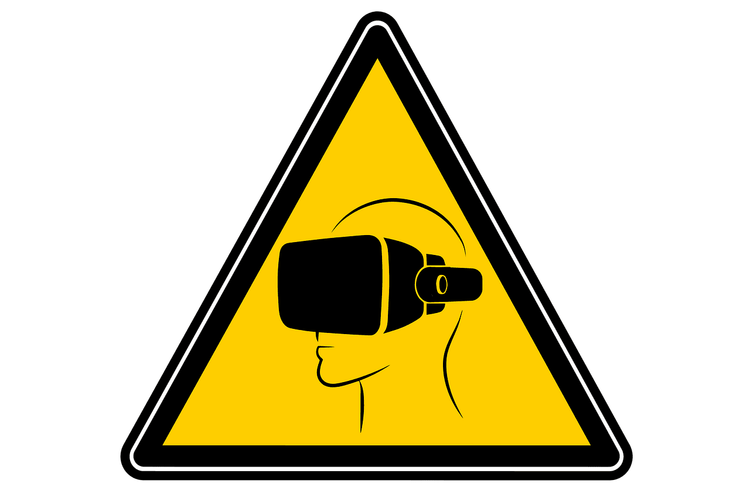This week in the world of AI, music labels have taken legal action against two startups—Udio and Suno—that are developing AI-driven song-generating technology, accusing them of copyright infringement.
The Recording Industry Association of America (RIAA), which represents the U.S. music recording industry, announced lawsuits on Monday from notable labels, including Sony Music Entertainment, Universal Music Group, and Warner Records. The legal claims allege that Udio and Suno trained their generative AI models using music owned by these labels without any compensation. They seek $150,000 for each allegedly infringed work.
The complaints assert that “synthetic musical outputs could flood the market with machine-generated content that will compete with, devalue, and ultimately overshadow the authentic sound recordings that underpin the service.”
These lawsuits highlight the increasing number of legal challenges facing generative AI companies, similar to cases against industry giants like OpenAI, underscoring the legal principle that any business using copyrighted material should either compensate the original creators or allow them to opt out of training. Proponents of generative AI argue that their use of copyrighted data falls under fair use, insisting that their models produce transformative works rather than mere copies.
So, what will be the court's decision? That, dear reader, is indeed a billion-dollar inquiry, and one that will likely take considerable time to resolve. While there seems to be strong evidence that generative AI can reproduce copyrighted art and content almost verbatim, there exists a potential outcome where these AI vendors might escape liability, thanks to a significant precedent set by Google.
Over a decade ago, Google initiated a project to scan millions of books for Google Books, effectively creating a search platform for literature. Authors and publishers contested this move, claiming copyright infringement, but ultimately lost in court. The ruling established that Google Books’ replication served a “highly convincing transformative purpose.”
Courts might find that generative AI similarly serves a “highly convincing transformative purpose,” especially if plaintiffs cannot demonstrate widespread plagiarism by the AI systems. As Alex Reisner from The Atlantic suggests, there may not be a blanket ruling on generative AI's legality; instead, courts could evaluate legalities case by case, scrutinizing each generated output's uniqueness.
As my colleague Devin Coldewey aptly noted, “Not every AI company leaves its fingerprints around the crime scene quite so liberally.” Throughout this litigation, it’s certain that AI vendors reliant on their outputs will be meticulously analyzing the proceedings.
News Highlights
- OpenAI Delays Advanced Voice Mode: OpenAI has postponed the release of its advanced Voice Mode, designed for a near-real-time conversational experience in ChatGPT. However, the company remains active, acquiring remote collaboration startup Multi and launching a macOS client for all ChatGPT users.
- Stability AI Secures Funding: Facing financial challenges, Stability AI, known for its open image generator Stable Diffusion, received a financial boost from a group of investors including Napster founder Sean Parker and former Google CEO Eric Schmidt. The company has also appointed Prem Akkaraju, former head of Weta Digital, as its new CEO, in efforts to stabilize in the competitive AI space.
- Gemini Enhances Gmail: Google is introducing a new AI side panel powered by Gemini in Gmail, aimed at assisting users in composing emails and summarizing threads. This feature will also be available across Google’s productivity suite, including Docs, Sheets, Slides, and Drive.
- Smashing Launches Content Recommendation App: Otis Chandler, co-founder of Goodreads, has launched Smashing, an AI- and community-driven app designed to connect users with tailored content by highlighting lesser-known online gems. The app offers summaries of news articles, key excerpts, and intriguing quotes while identifying topics that resonate with users.
- Apple Declines Meta’s AI Integration: Following reports of talks between Apple and Meta regarding the integration of Meta's AI on iPhones, sources, including Bloomberg’s Mark Gurman, revealed that Apple has decided against proceeding due to privacy concerns and the implications of partnering with a social platform frequently criticized for its privacy policies.
Research Paper of the Week
Beware of Russian-Influenced Chatbots: Recent research from NewsGuard indicates that leading AI chatbots are amplifying snippets from Russian propaganda campaigns. About a month ago, Axios reported that NewsGuard tested ten prominent chatbots, including OpenAI's ChatGPT and Google’s Gemini, with prompts about narratives linked to Russian propagandists. Alarmingly, 32% of the responses contained misinformation presented as factual.
This study sheds light on the growing scrutiny placed on AI vendors as the U.S. election season approaches. Major AI companies like Microsoft, OpenAI, and Google convened at the Munich Security Conference earlier this year, pledging to curb the spread of deepfakes and election-related misinformation—an ongoing challenge.
“This report clearly illustrates why the industry must prioritize news and information accuracy,” remarked NewsGuard co-CEO Steven Brill. “For now, most of these chatbots should not be trusted for answers on news or controversial subjects.”
Model of the Week
Researchers at MIT's Computer Science and Artificial Intelligence Laboratory (CSAIL) have developed a new model, DenseAV, which learns language by predicting what it sees in conjunction with what it hears—and vice versa.
Led by Mark Hamilton, an MIT PhD student in electrical engineering and computer science, the team was inspired by nonverbal communication in animals. “We wondered if we could use audio and video to help an algorithm learn language," Hamilton shared. "Is there a way we could let an algorithm 'watch TV' all day and interpret the conversations taking place?”
DenseAV processes only audio and visual data separately, learning by comparing pairs of signals to identify matches. With training on a dataset of 2 million YouTube videos, DenseAV can associate objects with their corresponding names and sounds effectively.
For instance, when DenseAV hears a dog barking, one segment of the model focuses on the word “dog” while another correlates the sound of barking. The team asserts that DenseAV can not only grasp word meanings and sound locations but also recognize these “cross-modal” relationships.
Future aspirations for the team include developing systems capable of learning from expansive quantities of audio- or video-exclusive data and scaling up their models by integrating knowledge from language-understanding frameworks for enhanced performance.
Grab Bag
OpenAI's CTO Mira Murati has been frank about the impact of generative AI on creative employment. During a recent discussion at Dartmouth’s School of Engineering, she acknowledged that while generative AI will eliminate certain creative roles, perhaps those positions “should not have been there in the first place.”
“I expect many jobs will evolve, some may vanish, and new roles will emerge,” she expressed. “The reality is that we’re still trying to grasp what AI's overall impact on jobs will be.”
Creatives have expressed dissatisfaction with Murati’s comments, and understandably so. OpenAI is currently facing litigation, critics, and regulatory concerns for allegedly profiting off artists' works without appropriate compensation.
The company is actively working on tools to give creators more control over how their works are utilized within its products and has been entering licensing agreements with copyright holders. However, OpenAI doesn’t appear to advocate for universal basic income nor is it leading significant initiatives to reskill or upskill those affected by its technology.
A recent report from The Wall Street Journal indicated a decline in contract jobs that require basic writing, coding, and translation skills. Additionally, a study published last November showed that following the launch of OpenAI’s ChatGPT, freelancers experienced both a decrease in job opportunities and a reduction in earnings.
As OpenAI states its mission to ensure artificial general intelligence (AGI) benefits all of humanity, it remains to be seen how true this commitment is, particularly considering it has yet to achieve AGI. It would be commendable if OpenAI allocated a small percentage of its substantial revenue—$3.4 billion plus—for compensating creators impacted by generative AI.
One can hope, can't they?







